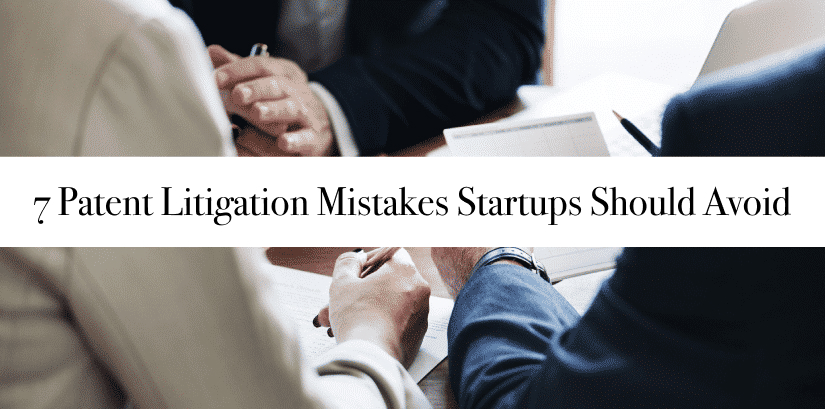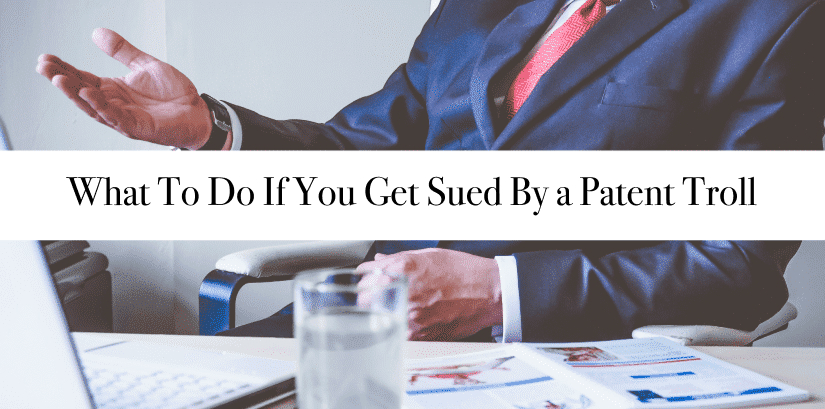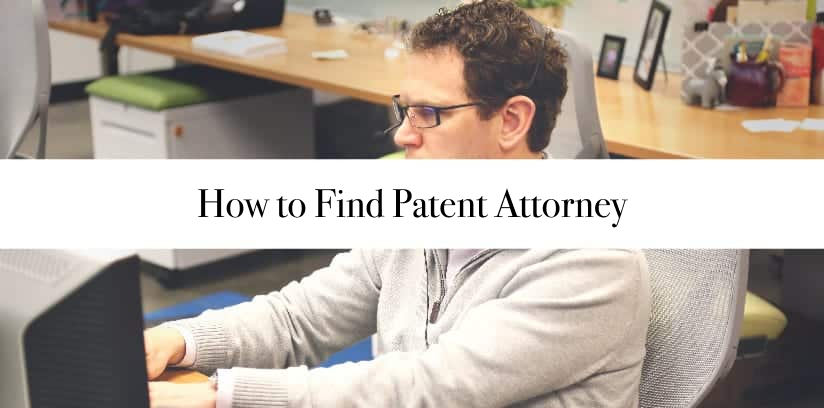Originally posted on May 2, 2018 @ 7:12 am
Having dedicated immense effort to crafting a product worthy of the spotlight, engaging business experts to devise a winning strategy, and preparing your masterpiece for its pivotal moment, your crowdfunding adventure is set to soar. Yet, have you considered the specter of **patent litigation** lurking nearby?
Getting a patent isn’t as easy as filling out a piece of paper and sending it to the government. Only 11.4% of first-action patents are actually approved.
Great entrepreneurs know their limits. If you’ve spent so much time and money on creating a great product, you’ll want to make sure that it’s protected and you can monetize your idea. Find out the top 7 mistakes startups make when they’re applying for a patent.
1) Jumping the Gun with Your Product
When you’ve spent so long on making your product, it’s natural for you to be excited about it. But unveiling your product to the world without having your patent application in place is one of the worst things you can do. It’s important to produce an MVP or prototype before you get too far.
For most patent application systems, you can’t get a valid patent for an idea that’s already been released in the public domain. That means sharing your idea on social media, crowdfunding websites, or pitching to potential investors could kill your patent before it even gets started.
You only have one year after you release your invention to the public to file a patent application. After that, your idea is no longer protected, and you’re on your own. If this is the case for you, contact a patent litigation lawyer as soon as possible.
Because applying for a patent can be a lengthy process, do yourself a favor and file for the patent before you release any information. This will protect your work, and your product, in the long run.
2) You Don’t Have a Product You Can Patent
The requirement for obtaining a patent is that it must be useful, novel, and
non-obvious. This might seem simple enough, but getting the wording right can be an absolute pain.
The method and process of your invention, otherwise known as “how it works”, must fit these requirements. It has to meet a need and be completely different from other solutions available. It also can’t be something your Uncle Joe can do in his sleep.
Although you might be tempted to take this opportunity to flex your creative writing muscles, it’s safer for you to contact a patent litigation lawyer. Patent lawyers have years of training and experience to help you put your patent application together and protect you from patent litigation issues in the future.
3) Failing to Put Agreements in Place During Development
Because of the nature of entrepreneurship in today’s technological age, there’s a good chance you hired a freelancer to help you develop your product or worked with a multidisciplinary team.
No one can do everything on their own. The problem is that if you didn’t make that person sign an Intellectual Property Rights contract, you could be opening your patent to problems in the future. Make sure that if you have a diversified team everyone knows exactly where ownership rights lie and you have some way of tracking development and ownership.
4) Confusing the Kinds of Intellectual Properties Protections
You might think you’re going for a patent when you really need a trademark or a copyright.
Before you apply for a patent, do some research on what kinds of protections you need for your intellectual property.
Trademarks are protections for brands, product names, slogans, taglines, and graphic logos. The McDonald’s Golden Arches would be protected under trademark law.
Copyrights are the right to control reproduction and distribution of original works of authorship. This protects every blog post, self-published book, or original velvet reproduction of Elvis under an unofficial “poor-mans” copyright. However, there are benefits to getting an official copyright protection.
Patents are property rights from the government that protect your product from anyone else making, using, selling or importing with your invention without your permission.
Do some research about the kinds of legal protection your business needs. You might need all three kinds of legal protection or just the one. Either way, it will help you to be educated about protecting your invention.
5) You Didn’t Properly Budget for Your Patent Process
Patent litigation and application can be an expensive process. Domestic patents in the US are anywhere from $5,000-$10,000. There are also hidden expenses that can pop up. International patents can cost upwards of $100,000. In today’s global economy, and with everyone having a website, international patents are more important than ever.
You’ll have to consider extra factors like marketability, utility, and application of your product in your patent budget.
The best way of determining how much your patent process is going to be is to talk to a patent litigation lawyer. Their years of experience, training, and expertise will be useful when you’re trying to figure how much money you should put away.
6) You Tried to Do It Yourself Instead of Hiring a Patent Litigation Expert
As an entrepreneur, you’re used to doing everything yourself. With all of the resources the internet has to offer, it’s tempting to DIY everything for your business. This could include your patent application process.
Because patents are so expensive, it might be tempting to cut corners and do it all yourself. But if you’re not experienced in writing patent applications, writing your own application could be an incredibly costly mistake.
It’s best to hire a professional patent litigation lawyer. You’ll want to hire someone up front to draft the application for you. They’re familiar with what the patent board is looking for. They also know how to word a patent to protect you from many ways the patent laws can turn against you.
Unless you have extensive experiences as a patent litigation lawyer, now is not the time to show off your independent creative spirit. You’ve spent a long time working on your invention and starting a business. Keep your focus where it needs to be, and leave the legal processes in the hands of a professional.
7) You Focus on the Wrong Details in Your Patent
When you’re putting your patent together, it’s easy to think of it as just another sales pitch. But patents are the complete opposite.
Most of the time you’re taught to perfect your elevator pitch. Why is your product important? Who does it help? Why is it going to be the greatest thing since sliced bread?
But when it comes to writing patent applications, you need to focus on the stuff your normal consumer doesn’t care about. Because you’re trying to patent the invention itself, the different applications don’t matter nearly as much.
For example, if you’ve made a revolutionary travel mug, you’re not going to spend a lot of time talking about how it holds hot tea. You’re going to talk about the specific materials you used to make it, how it works together, and the scientific technology that keeps your drinks hotter for longer than other travel mugs.
On the flip side, you don’t want to get too specific about the application of your patented inventions. If you’ve invented a specific fabric for the interior of a vehicle, don’t try and patent your invention as a “seat cover.” Patent the fabric itself, and then you can apply it to any fabric product you want.
Ready to Create Your Patent?
Now that you’ve done some more research about patents, you’re probably itching to get started. While you could visit the patent website and start working, take a second to think.
Before you start gathering your materials and creating the application, contact a patent litigation lawyer. They’ll be able to guide you and help you succeed in getting a product patent.






